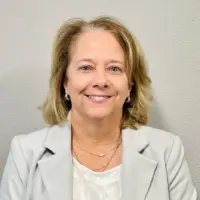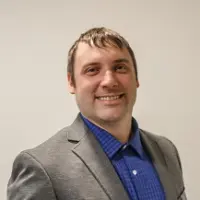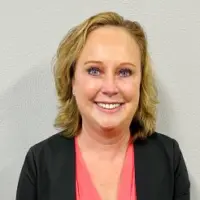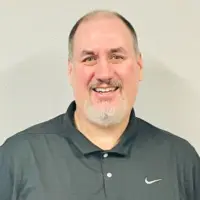I had been through treatment programs before, but I always went to a program for my wife or family. When I came to Port of Hope I finally came to treatment for myself. I finally realized that staying sober had to be my number one priority.
About ACS Clinical Services
ATTIC Correctional Services stands for “Alternatives to Traditional Incarceration of Citizens.” It’s a nonprofit, community based group offering a variety of services (including substance abuse treatment) in Appleton, Wisconsin.
Their mission is to provide services as alternatives to imprisonment. They work with the justice system to deliver services to the incarcerated, too.
Substance use disorder and mental health treatment aren’t always readily available to prison populations. Groups like ATTIC believe that punishment alone is rarely enough to change harmful and criminal behaviors. Thus, their programs present opportunities to turn your life around.
Transitional Assistance
In addition to their own residential and outpatient treatment programs, this group aids offenders with transitional living support. This means a place to live and develop independent living skills. Support focuses on helping clients return to their communities with a strong foundation at their feet.
To me, this is one of the most important alcohol and drug addiction services available. Whether coming out of incarceration or treatment, it can be difficult to find your way again and achieve real stability. By addressing some of the most basic living needs, this service does a lot to ensure a smoother return.
Reintegration Case Management
Case management is especially important for those exiting the legal system, and this group understands that. They have multiple levels of case management for assisting clients and connecting them with supportive resources they can use to better support themselves. Case management encourages both independent living and community participation.
Of the many events that happen year round, the Mile of Music festival is perhaps the most beloved in Appleton. But there are many cultural events each year, so even if music’s not your thing, you’ll still find great ways to enjoy your recovery journey.
Rehab Score
Location
Other Forms of Payment
Self-pay involves paying for treatment out of your own pocket. You can use savings or credit, get a personal loan, or receive help from family and friends to fund your treatment. If you don't have insurance or your insurance plan doesn't cover a specific program, self-pay can help ensure you still get the care you need.
Addiction Treatments
Levels of Care
Outpatient Programs (OP) are for those seeking mental rehab or drug rehab, but who also stay at home every night. The main difference between outpatient treatment (OP) and intensive outpatient treatment (IOP) lies in the amount of hours the patient spends at the facility. Most of the time an outpatient program is designed for someone who has completed an inpatient stay and is looking to continue their growth in recovery. Outpatient is not meant to be the starting point, it is commonly referred to as aftercare.
Residential treatment programs are those that offer housing and meals in addition to substance abuse treatment. Rehab facilities that offer residential treatment allow patients to focus solely on recovery, in an environment totally separate from their lives. Some rehab centers specialize in short-term residential treatment (a few days to a week or two), while others solely provide treatment on a long-term basis (several weeks to months). Some offer both, and tailor treatment to the patient's individual requirements.
Treatments
The goal of treatment for alcoholism is abstinence. Those with poor social support, poor motivation, or psychiatric disorders tend to relapse within a few years of treatment. For these people, success is measured by longer periods of abstinence, reduced use of alcohol, better health, and improved social functioning. Recovery and Maintenance are usually based on 12 step programs and AA meetings.
The goal of drug rehab in Wisconsin is to address drug addiction as a complex issue that involves physical, mental, and relational aspects. During rehab, treatment focuses on each of these areas and gives you the tools you need to achieve and maintain sobriety.
Opioid rehabs specialize in supporting those recovering from opioid addiction. They treat those suffering from addiction to illegal opioids like heroin, as well as prescription drugs like oxycodone. These centers typically combine both physical as well as mental and emotional support to help stop addiction. Physical support often includes medical detox and subsequent medical support (including medication), and mental support includes in-depth therapy to address the underlying causes of addiction.
Substance rehabs focus on helping individuals recover from substance abuse, including alcohol and drug addiction (both illegal and prescription drugs). They often include the opportunity to engage in both individual as well as group therapy.
Programs
Adult rehab programs include therapies tailored to each client's specific needs, goals, and recovery progress. They are tailored to the specific challenges adult clients may face, including family and work pressures and commitments. From inpatient and residential treatment to various levels of outpatient services, there are many options available. Some facilities also help adults work through co-occurring conditions, like anxiety, that can accompany addiction.
Young adulthood can be an exciting, yet difficult, time of transition. Individuals in their late teens to mid-20s face unique stressors related to school, jobs, families, and social circles, which can lead to a rise in substance use. Rehab centers with dedicated young adult programs will include activities and amenities that cater to this age group, with an emphasis on specialized counseling, peer socialization, and ongoing aftercare.
Clinical Services
As a form of substance use treatment, cognitive behavioral therapy in Wisconsin offers several advantages. The duration of this talk therapy is typically 20 sessions or less, so it can be more affordable, with quicker results. It's also offered in multiple formats, so it can be tailored to meet individual needs.
Group therapy is any therapeutic work that happens in a group (not one-on-one). There are a number of different group therapy modalities, including support groups, experiential therapy, psycho-education, and more. Group therapy involves treatment as well as processing interaction between group members.
In individual therapy, a patient meets one-on-one with a trained psychologist or counselor. Therapy is a pivotal part of effective substance abuse treatment, as it often covers root causes of addiction, including challenges faced by the patient in their social, family, and work/school life.
One focus of family therapy is to create a network for the individual in recovery. Families must identify dysfunctional patterns and develop healthier ways of interacting. This can significantly improve their loved one's treatment outcome.
Life skills trainings involve all the skills a person must have in order to function successfully in the world. These include time management, career guidance, money management, and effective communication. Truly successful addiction recovery is based on the ability to not only live substance-free, but to thrive. Life skills teaches the practical necessities of functioning in society, which sets clients up for success in life, and therefore sobriety.
An experiential therapy approach allows clients to address their pain through doing and relating rather than only talking about it. Examples of this approach include equine therapy, adventure therapy, music, gardening, and martial arts.
Amenities
-
Private Setting
Staff

Vicki Trebian
President & CEO

Mark Wakefield
VP of Operations: Southern Region

Shawn Yeager
VP of Operations: Northern Region

Tiffany Walker
Clinical Services Director

Todd Vieth
Residential Program Director
Contact Information
720 West Washington Street
Appleton, WI 54914
